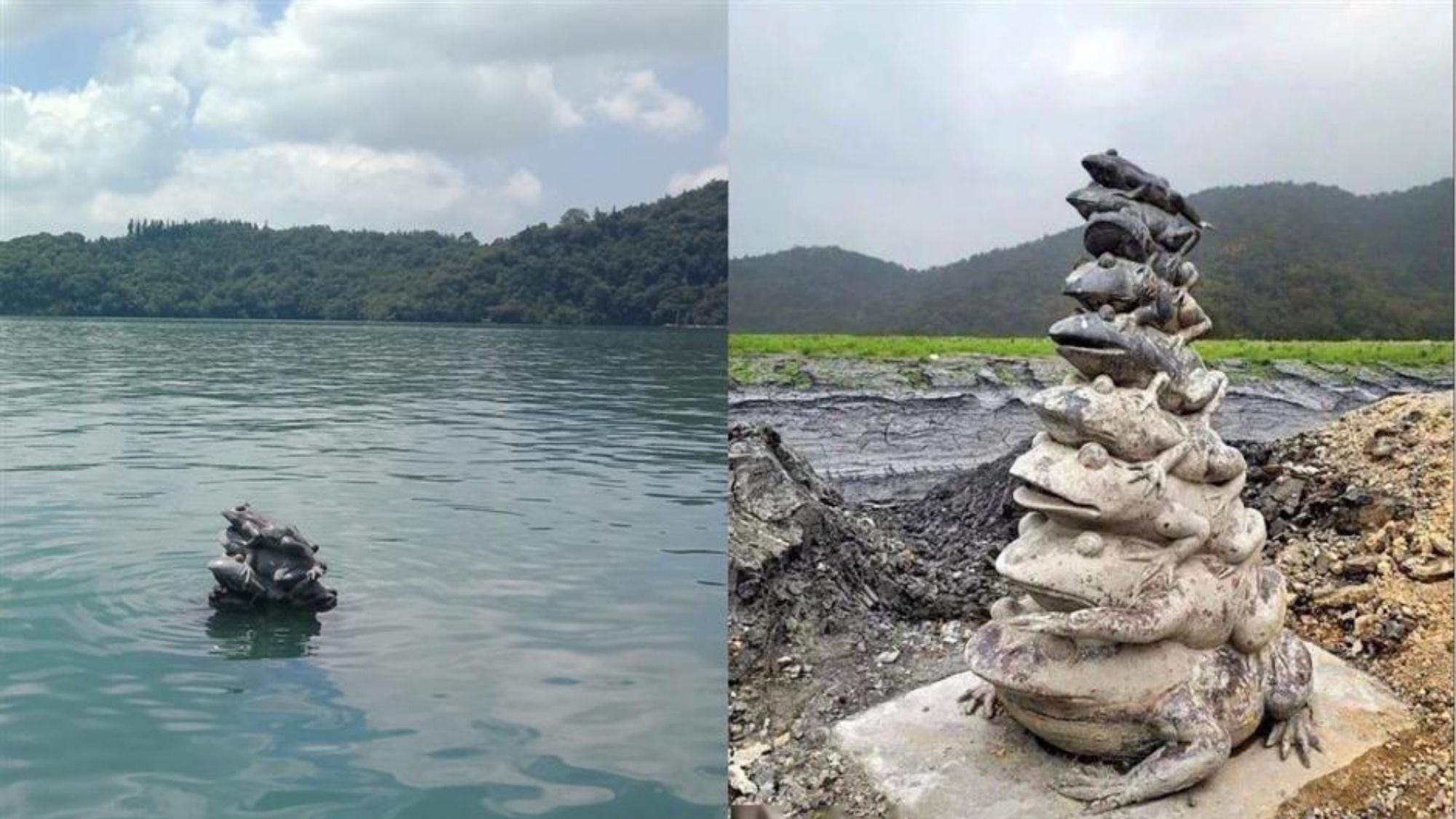With one of the cheapest water rates in the world, Taiwan’s residents have had little incentive to save water. Will the country’s worst drought in decades finally force Taiwanese to conserve a precious resource?
Sun Moon Lake in Taiwan—usually the island’s most famous tourist destination—has become a star for a different reason.
Following the country’s worst drought in 56 years, it is now famous for all the wrong reasons.
These days, Instagram influencers photograph themselves posing in a dust-colored, dinghy half-buried in a cracked and cratered lakebed.
Earlier this month, the resurfacing of a long-lost mobile phone (which still worked) made international news, while China’s hawkish tabloid, the Global Times, seized on the discovery of a suspected Qing dynasty tombstone to bolster the mainland’s claims of sovereignty over Taiwan.
But away from the quirky headlines, the situation is dire.
Other reservoirs across central and southern Taiwan are effectively empty, down to 5 percent or less. Last week, there were reports of mass fish deaths, a phenomenon seen in Australia’s drought.
Taiwan has had droughts before, but observers are hoping the severity of this one – which has lasted 18 months and threatens Taiwan’s economic lifeblood of semiconductor production – is enough to prompt real action on climate change.
No typhoon in 2020
Taiwan relies heavily on seasonal typhoons to top up reservoirs, but in 2020 not one made landfall. And it could happen again.
Dr Huang-Hsiung Hsu, executive officer at Academica Sinica’s anthropogenic climate change center, says studies have suggested “fewer but stronger typhoons, drier springs, fewer rainy days, and stronger precipitation strength in the warming future, in addition to the expected significant temperature rise and heatwaves as everywhere around the world.”
“[This will] mean a higher risk of water shortage and natural disasters such as flooding and landslide.”
He said governments have not been sincere in their commitment to climate crisis policy, and he joined other observers who say the government is not prepared for the future.
Water conservation
There are plans to redirect rivers and raise reservoirs, but in response to the current crisis authorities have closed swimming pools, saunas and carwashes, ordered companies to cut water use, and some counties, including Taichung on the east coast, are preparing to re-dig decades-old wells.
There have been mass prayer events to the god Matsu, and government scientists have conducted what Hsu calls the “immature technology” of cloud seeding.
Many people across the island are under tight restrictions, with tap water shut off for entire areas for two days a week.
Every Wednesday afternoon, Dino Chang fills every available container in the house with water, including a baby bath in the corner of her bathroom. Chang even saves the water from the dehumidifier.
In her kitchen, the 43-year-old carefully separates water for washing and the water for cooking, although during their two waterless days, she and her husband tend to get UberEats.
They also shower as late as possible.
If she calculates correctly, their stored water will last until the supply comes back on. If not, she will have to carry a bucket two blocks through her middle-class Taichung neighborhood to a temporary emergency tank, which bears the sign: “Treasure the water sources, this is for living. If you steal it, there will be consequences.”
Observers say few of the measures taken so far address the long-term prospect that Taiwan might not be able to rely on typhoons in the future, and the official attitude avoids a core issue: the population pays too little for water while using too much of it.
Residents are estimated to have some of the cheapest water in the world, and in 2020 used an average of 289 liters every day.
Those in the capital Taipei used an average of 338 liters, compared to 142 liters in the United Kingdom.
Population and power is centered in Taipei, which gets its water from a clean and plentiful reservoir and rarely suffers such shortages.
With such low pricing, it is hard to remember what is going on elsewhere, unless you are having to fill buckets every Wednesday.
“People have no incentive to conserve, recycle or come up with innovative solutions,” says Thomas Liou, of Taichung’s urban planning department.
He says governments have long known that raising the price of water is electoral suicide.
“Unless you have a crisis,” he adds, noting small increases after the 1999 earthquake. “This year might be the time to try.”
(RdlC/With report from the UK Guardian)
Tags: #Taiwan, #water, #watershortage, #conservation
